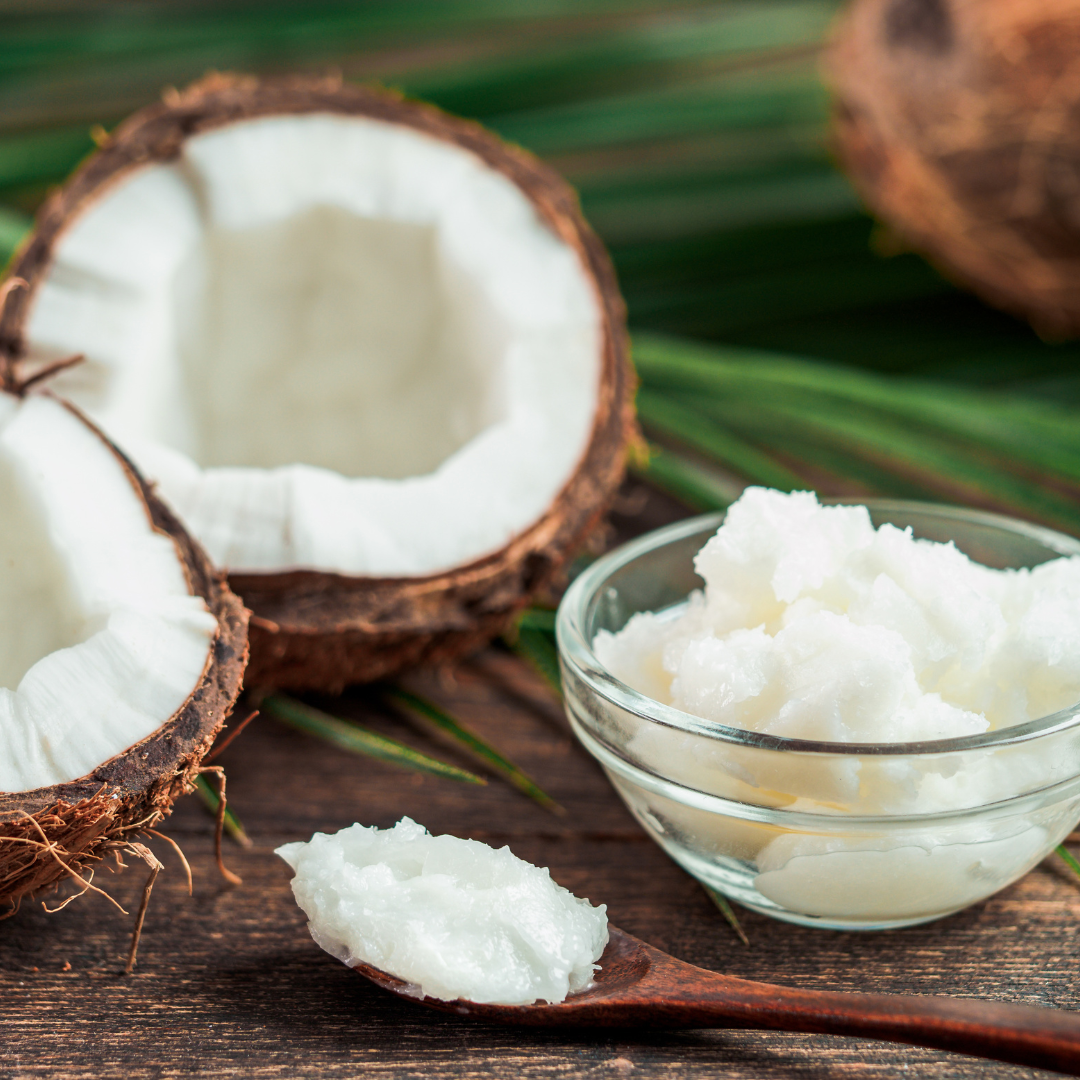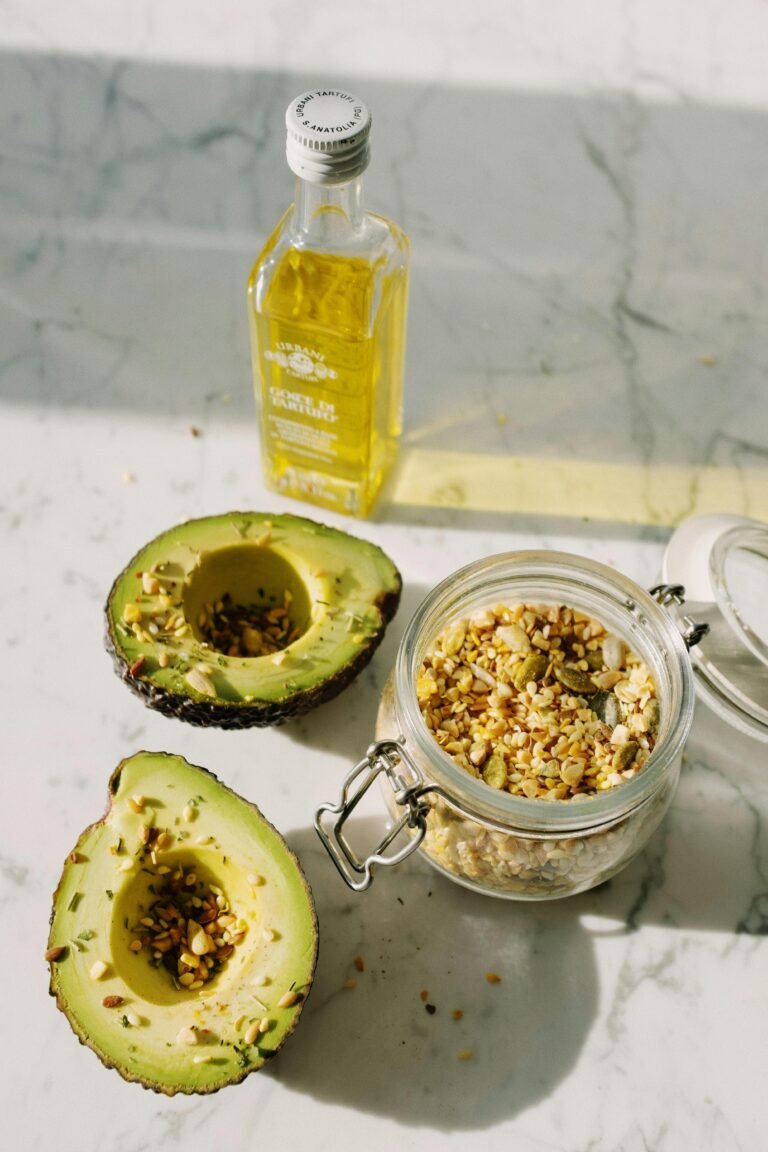Coconut Oil: Superfood or Health Risk? Latest Research

- What Makes Coconut Oil a Superfood?
- 20 Evidence-Based Health Benefits of Coconut Oil
- Potential Health Risks of Coconut Oil
- Expert Opinions and Latest Studies
- Practical Tips for Using Coconut Oil Safely
- Conclusion
Coconut oil has soared in popularity over the past decade, praised as a “superfood” with impressive health benefits. However, despite the growing enthusiasm, there is ongoing debate about the potential health risks associated with coconut oil. Is it truly a nutritional powerhouse, or do the risks outweigh the benefits? This blog post delves into the latest research on coconut oil health benefits and risks, exploring whether it’s the superfood many claim it to be.
What Makes Coconut Oil a Superfood?
The Nutritional Profile
Coconut oil is primarily composed of medium-chain triglycerides (MCTs), a type of saturated fat that is metabolized differently from the long-chain fatty acids found in most other foods. MCTs are absorbed directly into the liver, where they are quickly converted into energy or ketones, which are alternative fuel sources for the brain. This unique metabolism is one reason why coconut oil is often hailed as a superfood.
Among these MCTs, lauric acid stands out, comprising nearly 50% of the fats in coconut oil. Lauric acid has potent antimicrobial properties and is believed to play a role in enhancing immune function. Moreover, coconut oil contains antioxidants like tocopherols and tocotrienols, which help neutralize harmful free radicals in the body, reducing oxidative stress and inflammation.
Health Benefits Supported by Research
Proponents of coconut oil often cite its wide range of health benefits, many of which are supported by scientific research. Here are some of the key benefits that have contributed to its superfood status:
- Improved Brain Function: The MCTs in coconut oil are known to produce ketones, which can serve as an alternative energy source for the brain, potentially offering benefits for those with neurodegenerative conditions like Alzheimer’s disease.
- Enhanced Skin and Hair Health: Coconut oil is a popular natural moisturizer, known to improve skin barrier function and protect against hair damage. Its antimicrobial properties also make it beneficial for treating conditions like eczema and dandruff.
- Weight Loss Support: MCTs are believed to increase energy expenditure and promote fat burning, which may contribute to weight loss, especially when combined with a balanced diet and exercise.
- Antimicrobial and Antioxidant Effects: The lauric acid in coconut oil has been shown to combat harmful bacteria, viruses, and fungi, while the oil’s antioxidants help reduce inflammation and protect the body from chronic diseases.
While these benefits are certainly appealing, it’s important to remember that not all research is conclusive, and the effects of coconut oil can vary depending on individual health conditions and lifestyle factors.
20 Evidence-Based Health Benefits of Coconut Oil
Now, let’s dive into the extensive list of health benefits that coconut oil has to offer, backed by scientific evidence.
1. Boosts Brain Function
Coconut oil’s medium-chain triglycerides (MCTs) are converted into ketones, which can serve as an alternative energy source for the brain. This is particularly beneficial for individuals with neurodegenerative diseases like Alzheimer’s, where the brain’s ability to use glucose is impaired. Some studies suggest that coconut oil may help improve cognitive function in older adults and those with mild to moderate Alzheimer’s disease.
2. Enhances Skin Health
Coconut oil is widely recognized for its ability to moisturize and protect the skin. Its small molecular structure allows it to penetrate deeply into the skin, improving hydration and reducing symptoms of conditions like eczema, dermatitis, and psoriasis. Additionally, its anti-inflammatory properties can help soothe irritated skin, making it an excellent natural remedy for various skin issues.
3. Strengthens Hair
Thanks to its moisturizing properties, coconut oil is often used to improve hair health. It penetrates the hair shaft, reducing protein loss and protecting against damage from brushing, styling, and environmental factors. Regular use of coconut oil can help reduce hair breakage, promote hair growth, and alleviate dandruff.
4. Supports Weight Loss
MCTs found in coconut oil are metabolized quickly and used as a source of energy, which can help increase fat burning and reduce appetite. Studies have shown that these fats can increase the number of calories burned compared to longer-chain fats, potentially aiding in weight loss, particularly when it comes to reducing abdominal fat.
5. Improves Oral Health
Coconut oil is a popular choice for oil pulling, an ancient Ayurvedic practice that involves swishing oil in the mouth to remove bacteria and improve oral hygiene. The lauric acid in coconut oil has antimicrobial properties that can help reduce harmful bacteria in the mouth, such as Streptococcus mutans, which is a major contributor to tooth decay and gum disease.
6. Reduces Seizures
Coconut oil may help reduce the frequency of seizures in individuals with epilepsy, particularly those who are resistant to drug treatment. The ketones produced from MCTs in coconut oil can be an alternative energy source for the brain, potentially reducing seizure activity, especially in children on ketogenic diets.
7. Promotes Heart Health
While coconut oil is high in saturated fats, some studies suggest it may still support heart health by increasing levels of HDL (“good”) cholesterol. This could help improve the overall cholesterol ratio, which is a better predictor of heart disease risk. However, it’s essential to balance coconut oil intake with other healthy fats and maintain an overall healthy diet.
8. Provides Antimicrobial Properties
The lauric acid in coconut oil has been shown to kill harmful pathogens, including bacteria, viruses, and fungi. This makes coconut oil a natural remedy for preventing infections and treating conditions such as candida and athlete’s foot. Its antimicrobial properties also extend to skincare, where it can help prevent and treat acne.
9. Reduces Inflammation
Chronic inflammation is a root cause of many diseases, including heart disease, arthritis, and cancer. The antioxidants in coconut oil help reduce inflammation in the body, potentially lowering the risk of these conditions. Additionally, coconut oil’s anti-inflammatory effects can benefit those with inflammatory skin conditions and joint pain.
10. Supports Digestive Health
Coconut oil aids digestion by helping the body absorb fat-soluble vitamins, minerals, and amino acids. It also helps improve gut health by fighting harmful bacteria, fungi, and parasites that can cause digestive disorders. This makes coconut oil a beneficial addition to the diet for those with irritable bowel syndrome (IBS) or other digestive issues.
11. Prevents UTI and Kidney Infections
The MCTs in coconut oil act as natural antibiotics by disrupting the lipid coating on bacteria, making them more susceptible to being destroyed by the immune system. This can help clear up urinary tract infections (UTIs) and kidney infections, offering a natural remedy without the side effects of conventional antibiotics.
12. Boosts Immune System
Coconut oil enhances the immune system by providing anti-inflammatory and antimicrobial benefits. It helps the body fight off harmful pathogens and reduces the risk of infections. Regular consumption of coconut oil, especially during cold and flu season, can help support the body’s natural defenses.
13. Improves Bone Health
Studies suggest that coconut oil can help increase calcium absorption in the gut, which is essential for maintaining strong bones. This is particularly beneficial for preventing osteoporosis, a condition where bones become brittle and fragile. Coconut oil’s antioxidant properties also play a role in reducing oxidative stress that contributes to bone loss.
14. Manages Type 2 Diabetes
Coconut oil helps regulate blood sugar levels by improving insulin sensitivity. The MCTs in coconut oil provide a steady source of energy that doesn’t rely on glucose, reducing the strain on the pancreas and helping prevent insulin resistance. This can be especially helpful for those managing type 2 diabetes.
15. Supports Hormone Balance
Coconut oil may help balance hormones naturally due to its rich supply of healthy saturated fats, including lauric acid. These fats are crucial for hormone production, making coconut oil beneficial for women going through menopause or experiencing hormone-related conditions.
16. Improves Energy and Endurance
Coconut oil is a quick source of energy due to its MCT content. Unlike long-chain fats, MCTs are rapidly absorbed and converted into fuel, making them ideal for boosting energy and endurance, particularly in athletes. Incorporating coconut oil into pre-workout meals or snacks can enhance performance.
17. Aids in Cancer Prevention
The ketones produced from coconut oil may have a therapeutic effect on cancer cells. Unlike normal cells, tumor cells are glucose-dependent and cannot utilize ketones effectively. This makes coconut oil a potential adjunct therapy in cancer treatment, as it could help starve cancer cells by depriving them of their primary fuel source.
18. Anti-Aging Effects
Coconut oil is rich in antioxidants that help reduce oxidative stress, one of the primary causes of aging. Regular consumption of coconut oil, along with its application on the skin, can help slow down the aging process by reducing the formation of wrinkles and keeping the skin hydrated and supple.
19. Promotes Skin Healing
In addition to its moisturizing properties, coconut oil has antimicrobial and anti-inflammatory effects that aid in skin healing. It can be used to treat minor wounds, burns, and even chronic skin conditions like psoriasis. Applying coconut oil to the skin can help speed up the healing process and reduce the risk of infection.
20. Supports Weight Loss
Coconut oil’s MCTs can increase metabolism and promote fat loss, particularly in the abdominal area. Unlike other fats, MCTs are more likely to be used for energy rather than stored as fat, making coconut oil a beneficial addition to a weight loss regimen. Additionally, it can help curb appetite and reduce overall calorie intake.
Potential Health Risks of Coconut Oil
While coconut oil offers a wide range of health benefits, it’s important to consider the potential risks associated with its consumption. One of the primary concerns is its high saturated fat content. Coconut oil is about 90% saturated fat, which has been linked to increased levels of LDL (“bad”) cholesterol, a major risk factor for heart disease.
Despite some studies suggesting that coconut oil may raise HDL (“good”) cholesterol, the increase in LDL could still outweigh the benefits. The American Heart Association has advised against using coconut oil for heart health due to its potential to raise LDL levels, recommending that saturated fat intake be limited to less than 10% of daily calories.
Heart Health Concerns
Research on coconut oil’s impact on heart health has yielded mixed results. Some studies suggest that it can increase HDL cholesterol and potentially improve the overall cholesterol ratio. However, other research indicates that coconut oil may raise LDL cholesterol, which could increase the risk of heart disease. This contradiction in findings makes it essential to use coconut oil in moderation and as part of a balanced diet.
It’s also important to consider the type of coconut oil being consumed. Virgin coconut oil, which is less processed, may retain more of its beneficial compounds, while refined coconut oil could lose some of these during processing. Choosing high-quality, unrefined coconut oil and limiting its intake can help mitigate potential risks.
Other Considerations
- High-Calorie Content: Coconut oil is calorie-dense, with about 120 calories per tablespoon. Overconsumption can lead to weight gain, especially if it is not balanced with other dietary fats and physical activity.
- Possible Allergic Reactions: Although rare, some individuals may have an allergic reaction to coconut oil, particularly if they have existing nut or seed allergies. It’s essential to test a small amount before incorporating it into your diet or skincare routine.
- Refined vs. Virgin Coconut Oil: Refined coconut oil undergoes processing that can strip away some of its beneficial properties. It may also contain additives or chemicals used during processing. Virgin coconut oil, on the other hand, is made from fresh coconut meat and retains more nutrients, making it the preferred option.
Expert Opinions and Latest Studies
The debate around coconut oil’s health implications is ongoing, with experts offering varied perspectives. Some nutritionists and researchers emphasize the benefits of coconut oil, particularly its antimicrobial properties and its ability to boost energy and support brain health. However, others caution against its high saturated fat content and the potential impact on heart health.
Recent studies have contributed to this debate by providing more nuanced insights into how coconut oil affects the body. For instance, a 2023 study highlighted that while MCTs in coconut oil might help with fat loss and energy levels, the overall impact on cholesterol levels is still a concern. Another study suggested that coconut oil might have a place in a balanced diet but warned against excessive consumption.
Health organizations like the American Heart Association continue to recommend caution when using coconut oil, particularly for individuals with existing heart conditions or those at risk of cardiovascular disease. Meanwhile, some holistic health experts advocate for its use, especially in cooking and skincare, due to its natural properties.
Ultimately, the consensus seems to be that coconut oil can be part of a healthy diet if used in moderation and in combination with other healthy fats. However, more long-term studies are needed to fully understand its effects, particularly concerning heart health.
Practical Tips for Using Coconut Oil Safely
Given the mixed opinions on coconut oil, how can you incorporate it into your daily routine without risking your health? Here are some practical tips to help you enjoy the benefits of coconut oil while minimizing potential downsides:
1. Use in Moderation
As with any dietary fat, moderation is key. Coconut oil is calorie-dense, so it’s important to limit your intake to avoid unnecessary weight gain. Aim to use coconut oil in small amounts, such as a teaspoon in your morning coffee or a tablespoon when cooking. Remember that a little goes a long way, and balancing your fat sources with other healthy fats, like olive oil and avocado, is crucial.
2. Choose High-Quality, Virgin Coconut Oil
Whenever possible, opt for virgin or extra-virgin coconut oil. This type of coconut oil is less processed, retaining more of the beneficial nutrients and compounds that contribute to its health benefits. Avoid refined coconut oil, which can contain additives and has undergone processing that may reduce its health benefits.
3. Incorporate Into a Balanced Diet
Coconut oil can be a healthy addition to your diet when used alongside a variety of other nutrient-rich foods. Try using it in cooking, baking, or as a substitute for butter in certain recipes. Pairing coconut oil with a diet rich in fruits, vegetables, whole grains, and lean proteins can help ensure you’re getting a balanced mix of nutrients.
4. Use Externally for Skin and Hair Care
Coconut oil isn’t just for eating; it’s also excellent for your skin and hair. You can use it as a natural moisturizer, hair conditioner, or makeup remover. Its antimicrobial properties make it effective for treating minor cuts, scrapes, and even acne. Applying coconut oil topically can help you reap its benefits without worrying about the impact on your cholesterol levels.
5. Consider Individual Health Needs
If you have specific health concerns, such as a history of heart disease or high cholesterol, consult with a healthcare professional before incorporating coconut oil into your diet. They can provide personalized advice based on your health history and dietary needs.
Conclusion
Coconut oil is a versatile and powerful natural product with a wide range of potential health benefits, from improving brain function and heart health to enhancing skin and hair. However, its high saturated fat content means it should be used with care, particularly by those with heart health concerns. The key is moderation and choosing the highest quality oil available.
While coconut oil can be part of a healthy diet, it’s important to balance its use with other healthy fats and maintain a diet rich in fruits, vegetables, and whole grains. By doing so, you can enjoy the benefits of coconut oil while minimizing potential risks.
Ultimately, whether coconut oil is a superfood or a health risk depends on how it’s used. By staying informed and mindful of your health needs, you can make the best decision for your well-being. Have you tried incorporating coconut oil into your routine? Share your experiences and thoughts with us!
References
Coconuts and Health: Different Chain Lengths of Saturated Fats Require Different Consideration
Supplementation with Medium-Chain Fatty Acids Increases Body Weight Loss During Very Low-Calorie Ketogenic Diet: A Retrospective Analysis in a Real-Life Setting
Biochemistry Chylomicron – StatPearls – NCBI Bookshelf
Coconut Oil and Heart Health: A Review of the Evidence
Oil Pulling with Coconut Oil to Improve Oral Hygiene and Oral Health: A Systematic Review
American Heart Association’s Stance on Saturated Fats






